Croatian General Election Preview: Expert Analysis from Ankica Mamic
June 25, 2020 - The Croatian general election is 10 days away. Leading political commentator Ankica Mamic offers her thoughts in this pre-election preview.
Official election campaigns for parliamentary elections in Croatia have begun. Though it seemed that the election would be held in a corona-free atmosphere, that unfortunately will not be the case. The coronavirus is again among us. At the moment, the numbers are not alarming nor worrying, but the fact is that certain events have favoured its spreading, such as the Adria Tour tennis event in Zadar where numerous organisational mistakes occurred. This is damaging for the current government, specifically Prime Minister Andrej Plenković, given that the event was organised with the endorsement of the Croatian Government, and has given the opposition the opportunity to take advantage of the situation in the election campaign.
Parliamentary elections will be held on July 5, 2020, with about 3.7 million voters in Croatia and from the Croatian diaspora having the right to vote. Croatia is divided into 10 constituencies each with 14 representatives elected to Croatian Parliament. In the 11th constituency, 3 representatives are elected by citizens who do not have permanent residency in the Republic of Croatia, whereas the 12th constituency, covering the entire territory of Croatia, is marked for the local national minorities in Croatia who will elect their 8 representatives. In all, 151 representatives are elected to Parliament, meaning that a parliamentary majority comprises 76 representatives.
The two leading and largest parties that have positioned themselves on the left and right electoral spectrum in Croatia are the RESTART coalition incorporating the centre left parties (SDP - Social Democratic Party, HSS, HSU, SNAGA, GLAS, IDS PGS and independent candidate Matija Posavec, whereas the Croatian Democratic Union (HDZ) is the centre-right party and currently the leading and governing party in Croatia. However, a survey of public opinion indicates that neither of these political options will be able to form a government after the elections without the support of smaller parties and other coalitions who have positioned themselves to the left, right or in the centre. This is primarily the Miroslav Škoro Domovinski pokret (Homeland Movement) as a right political option, which has currently established itself as the third political force in Croatia. The party MOST nezavisnih lista (Bridge of Independent Lists) has also positioned itself to the centre right. Among the left aligned parties is the political platform Možemo (We Can), gathered around active opponents of Milan Bandić in the city of Zagreb, whereas the centre-aligned parties include Hrvatska narodna stranka (Croatian People's Party – Liberal Democrats), Koalicija centra (Centre Coalition), Demokrati i laburisti (Democrats and Labourists) and also the Reformisti (Reformists).
If we consider that a reallocation of parliamentary seats within the Restart coalition formed by SDP results in 8 seats going to SDP’s partners (HSS 3, HSU 2, GLAS 1, PGS 1 and Matija Posavec 1), the presumption is that HDZ will be the strongest single party at the coming elections. However, it becomes clear that the Restart coalition is prepared to fight for every parliamentary seat. The campaign is now in full swing, with candidates touring Croatia and presenting their programs to the electorate. The resurgence of the coronavirus is assisting the Restart coalition. However, the situation highlights the leading people of the National Civil Protection Headquarters, i.e., Minister Beroš as an HDZ candidate in the 10th constituency and Minister Božinović as a candidate in the 6th constituency. Though HDZ’s slogan of a safe Croatia is somewhat comprised now, unless the opposition adequately responds in communicating that in the campaign, the current situation will cause not greater damage on HDZ.
The Miroslav Škoro Homeland Movement is heading off to the elections with quite an extensive list of people whom the public knows little or almost nothing about, or who come from an altogether different world, mostly from show business. It remains to be seen whether the list of candidates in the Homeland Movement will remain cohesive or disperse, which is what happened to Most after winning a total of 19 parliamentary seats in the 2015 elections. Concerning any possibility of forming a coalition, the pool of candidates gathered around Miroslav Škoro certainly presents a greater potential for a reaching post-election agreement with HDZ.
Most, which also lies on the spectrum of the conservative right, has an active and quite visible campaign with well-articulated messages and new political personalities who are well known to the public. However, their problem is that they are not a preferred coalition partner neither for HDZ with which they share similar ideologies, due to a failed political relationship from the past and the demise of the then coalition, nor are they suitable for the Social Democratic Party of Croatia (SPD), i.e., the Restart coalition, given that Most is too far to the right.
The latest survey of public opinion across constituencies in Croatia predicts 64 parliamentary seats going to the Restart coalition, 52 to HDZ, 15 to the Homeland Movement, 8 to Most and 1 to HNS. However, in some of the constituencies, some parties are hovering around the election threshold, and possibly leading to different outcomes. For instance, in the 3rd constituency, where the Reformist Radimir Čačić, the current mayor of Varaždin County, also has a big chance of winning a seat. An uncertain and interesting battle will take place in the 6th and 7th constituencies which include parts of the city of Zagreb and surrounding region. A united left in Zagreb, having branded itself through its opposition activities in Zagreb City Assembly, might result in a surprise in Zagreb due to the large number of voters there and the fact that the united left has been an active opposition to the Mayor of Zagreb, Milan Bandić. Therefore, I think that this left option might win a lot of left-leaning voters in Zagreb.
Tracking what the 8 minority representatives decide will be interesting, on account of their animosity towards Miroslav Škoro and the Homeland Movement. However, power is the best cohesive force and after the elections, various political combinations are possible, meaning that a large coalition might still be a possibility. Understandably, no political option wants to talk about that possibility at the moment, because such an outcome is certainly not appealing to each of their voters who form opposing camps.
So, we need to wait until 5 July, and after that, anything is possible!
You can connect with Ankica Mamic via LinkedIn.
For more election coverage, follow the TCN politics section.
Kad su za vas bile "zlatne godine" u Hrvatskoj? Ankica Mamić iz Zagreba
15. travnja 2020. - Dakle, kad je za vas bila zlatna era života u Hrvatskoj? Nova serija članaka osvrće se na sretnija vremena kroz oči stanovnika Hrvatske. Prva u seriji je dugogodišnja ljubiteljica TCN-a i vrhunska kuharica, Ankica Mamić iz Zagreba.
Dobio sam mnoge molbe da na ovu stranicu dodat drukčiji sadržaj - po mogućnosti veseliji - da bih malo unio živosti u cijelu ovu mizeriju vezanu za koronu. Razumijem te očajničke želje. Ako mislite da su vijesti o koroni toliko naporne, podijelite neku lijepu misao s nama kojima je posao o tome izvještavati cijeli dan.
Pa eto ideje, na kojoj sam veoma zahvalan mojoj prijateljici Ankici Mamić, koja ju je tako izvanredno pokrenula - Kada su za vas bile "zlatne godine" u Hrvatskoj?
Prije par tjedana pokrenuli smo seriju Foreign Self-Isolation Stories: Do You Feel Safer? (Strane priče iz samo-izolacije: osjećate li se sigurnije?), u kojima smo pitali strane državljane koji žive u Hrvatskoj da usporede kako se Hrvatska nosi s ovom situacijom, u usporedbi s njihovim originalnim domovinama. Do sada smo dobili gotovo 40 sjajnih odgovora na intervju, od Hong Konga do Hondurasa, Kine do Meksika, Japana do Novog Zelanda.
Novi logičan iskorak bio je Glasovi Korone u dijaspori, u kojima smo nastojali saznati kako se Hrvati u inozemstvu nose s okolnostima u kojima su se našli, u usporedbi s Domovinom.
A onda, da bismo pokušali dodati nešto veselja, započeli smo "Stranci u izolaciji: Mojih 10 najboljih iskustava u Hrvatskoj". Te članke možete pronaći, kao i upute za prijave na bilo koju od tih kategorija, ispod intervjua u pojedinačnim člancima ovdje.
Ali, istovremeno sam htio pronaći način da se ljudi u Hrvatskoj sjete sretnijih vremena, pa smo razmišljali uvesti seriju članaka o sjećanjima ljudi o njihovoj najdražoj eri života u Hrvatskoj. Ako želite sudjelovati, molim vas da pošaljete svoj tekst, 4-6 fotografija, uvodni pasus te (ako to želite) link na vašu web-stranicu na This email address is being protected from spambots. You need JavaScript enabled to view it., sa subjectom Zlatna era.
A sad, pročitajmo što o zlatnim godinama ima reći Ankica Mamić.
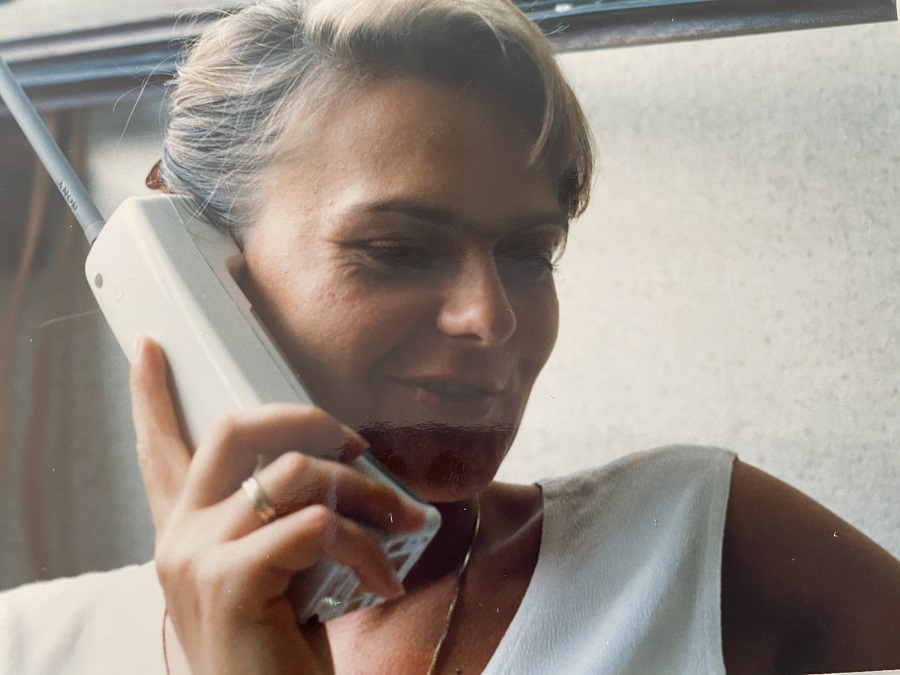
Hrvatska je prekrasna zemlja i kad bi govorili samo o oku vidljivim ljepotama i prednostima života u njoj, lista bi bila jako duga. Međutim, nije lijepo uvijek samo ono „izvana“. Najljepše uspomene nastaju onda kada se ostvaruju ciljevi – životni i poslovni, vlastiti i opći.
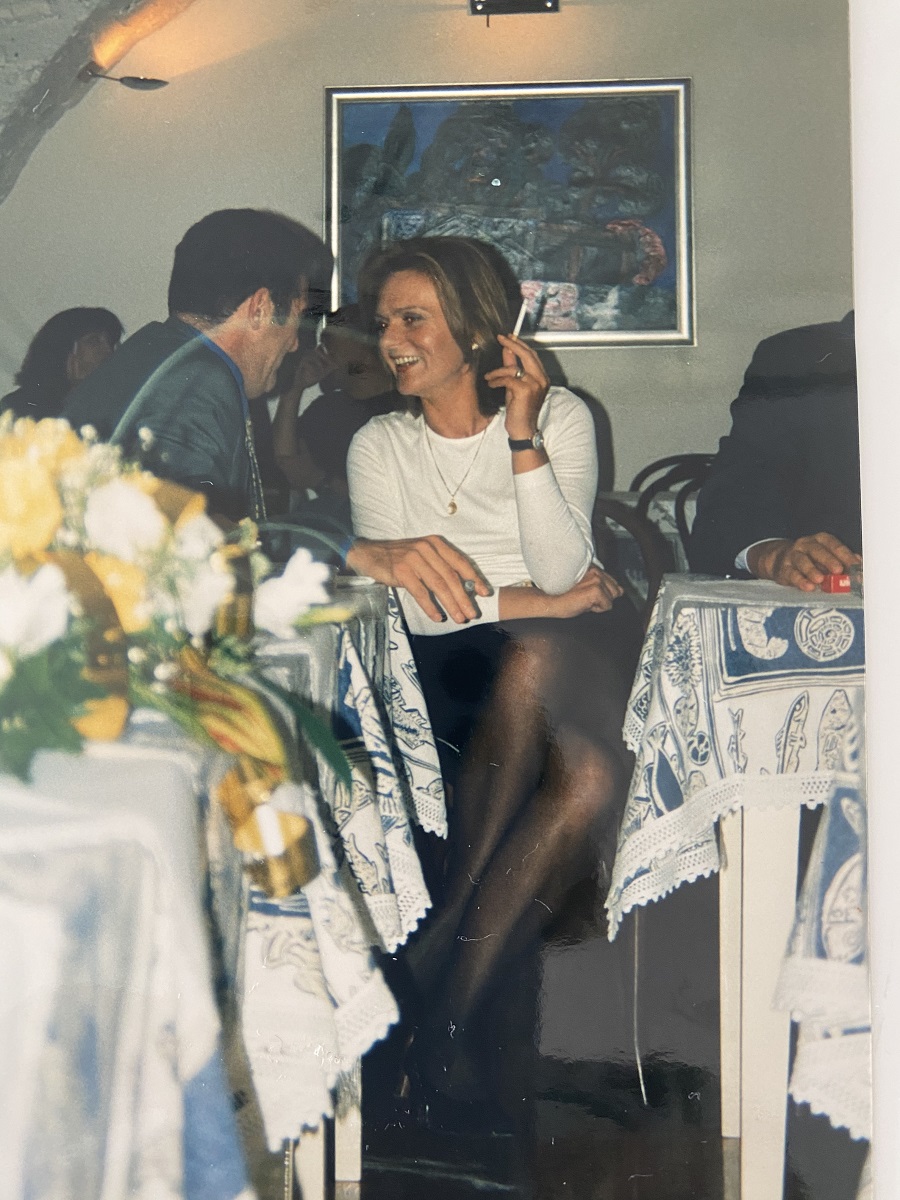
Stoga bih se najprije vratila u vrijeme kasnih 80-tih, kada se nazirao pad komunizma i kada je počela izranjati stoljetna čežnja za vlastitom državom. Tada sam bila u godinam kada sam mogla s dovoljno zrelosti, a opet i dovoljno mladosti za zanos i strast, sve to proživljavati i razumijevati. „Gutala“ sam vijesti, pratila sve što se priča i događa, s nestrpljenjem iščekivala svaku novost. Nažalost, shvatili smo vrlo brzo da će ostvarenje sna biti teško i bolno. Počeo je rat i naši životi su se preko noći promijenili. Međutim, to teško vrijeme donijelo je i mnogo lijepih stvari. Zajedništva, promišljanja i traženja rješenja. U podrumima zagrebačkih restorana okupljale su se skupine ljudi koje su na različite načine željele dati svoj doprinos i sa zadovoljstvom sam se i sama pridružila. Bila sam blizu mnogim ljudima koji su ubrzo postali jako važni i koji su ostavili trag u mom životu. Ponajprije, od tih sam ljudi ljudi mogla puno naučiti jer su me inspirirali da tražim najbolje dijelove sebe.
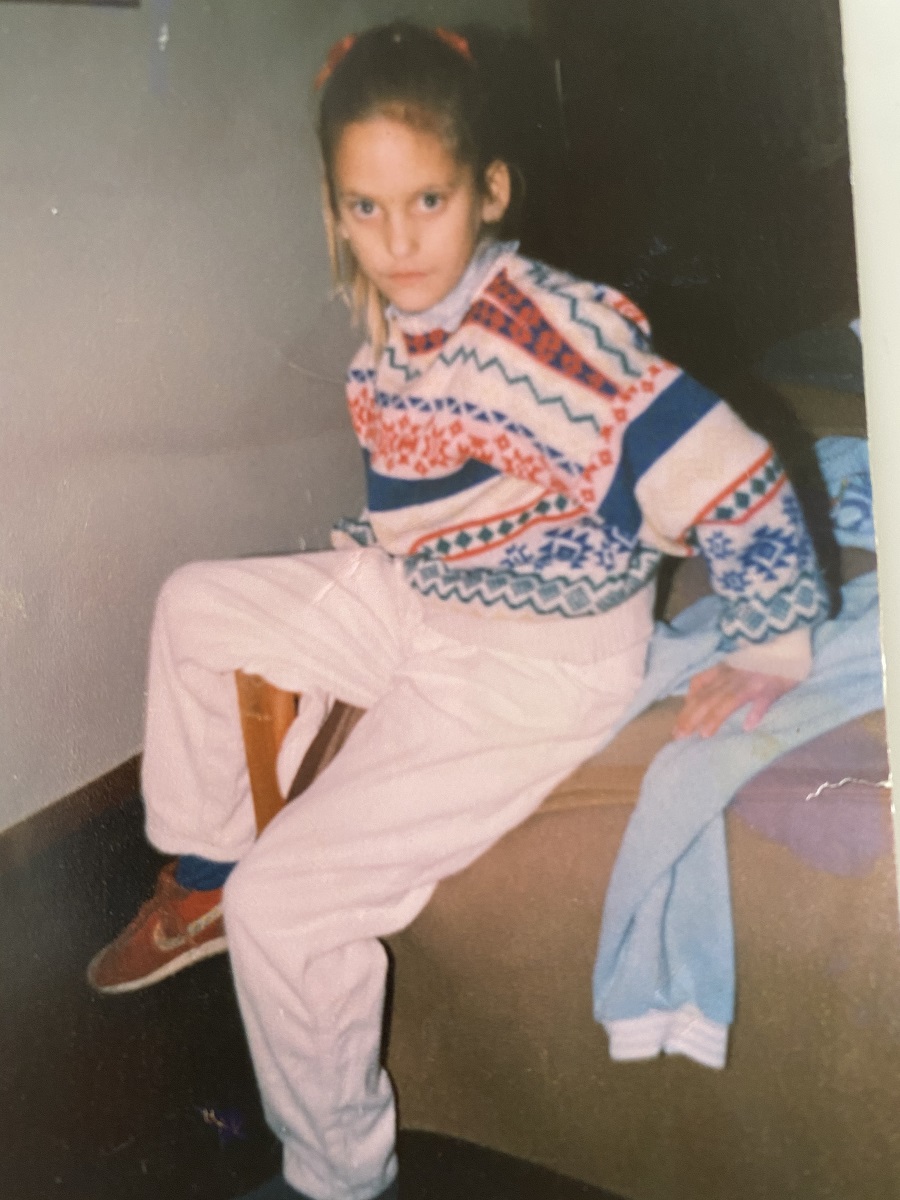
Iz toga vremena naravno pamtim i strahove. Iako je u Zagrebu bilo relativno mirno, život je bilo teško organizirati u vrijeme između uzbuna. Najteže mi je bilo dok je moja tada desetogodišnja kći još uvijek morala ići na nastavu. Znali smo da će cijena slobode biti velika, ali svejedno, sreća koja se nazirala nakon toga rata izgledala je vrijedna svega.
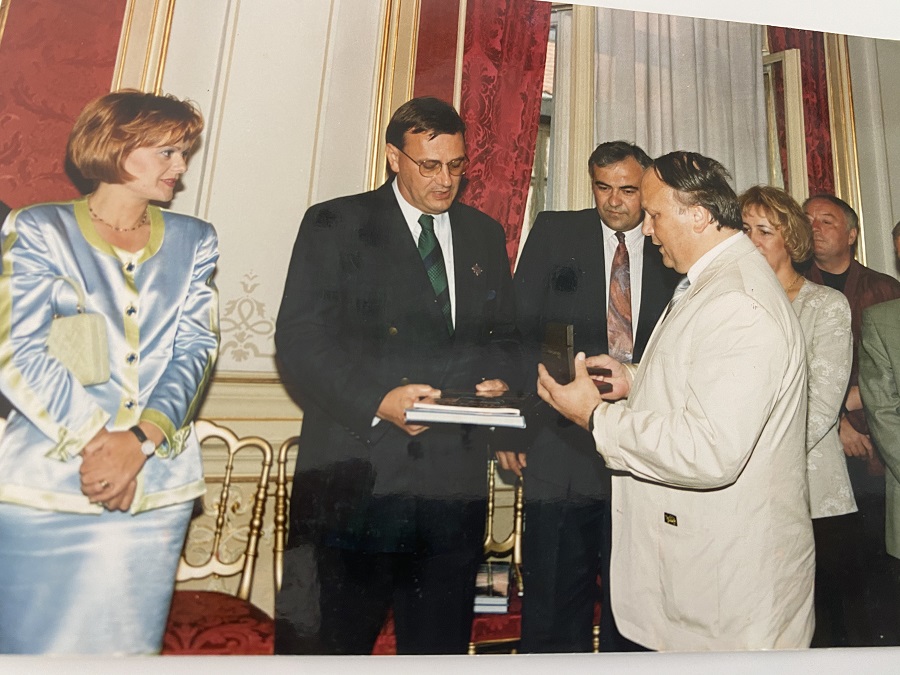
Posljedice rata bile su očekivane. Nastupilo je je dugo razdoblje prilagodbe, sporog dizanja i oporavka. Međutim, dočekali smo i bolja vremena. Razdoblje od 2000. do 2006. posebno pamtim kao vrijeme u kojem smo doživjeli ekonomski procvat. I sama sam, kao relativno mladi poduzetnik, vidjela i našla svoju priliku. U to vrijeme pokrenula sam agenciju za odnose s javnošću. Struka koja zapravo nije postojala počela je živjeti i prilike su se otvarale. U to je vrijeme u Hrvatskoj zaista bilo lijepo raditi, ali i živjeti. Dobili smo i željenu autocestu Zagreb-Split za koju su i naši roditelji izdvajali samodoprinos i koja nam je omogućila da počnemo vikende provoditi u predivnoj Dalmaciji. Iz tog vremena nosim i najljepše uspomene s naše obale, krstarenja i otkrivanja otoka, druženja i uživanja u hrvatskoj gastronomiji i vinima. Naime, među granama koje su apsolutno procvjetale otkada smo dobili državu, svakako su gastronomija i proizvodnja vina.
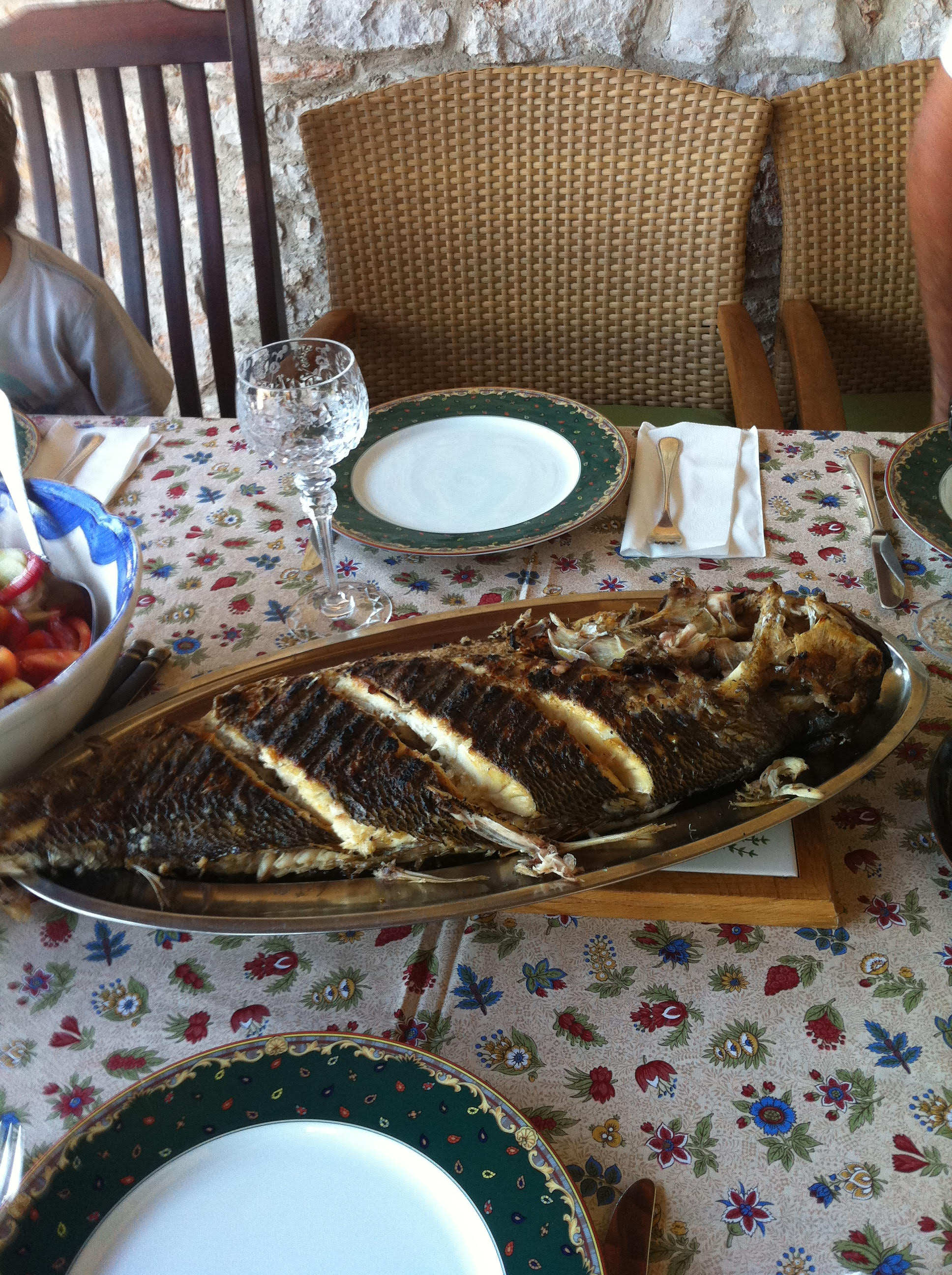
Život se sastoji od dobrih loših i dana, dobrih i loših godina. Iz svake krize trudila sam se nešto naučiti. Međutim, ova kriza koju sada dijelimo sa svijetom, nekako mi se čini najtežom do sada. Malo je onoga što mi se čini da će biti dobro nakon nje. Možda ipak jedna stvar. Hrvatska ima priliku propitati smisao glomaznog državnog aparata i pročistiti mnoge nepotrebne organizacije i agencije. Jedno malo dobro već se vidi na kraju tunela. A to je krah populističkih politika, koje su se u krizi pokazale potpuno nemoćnim.
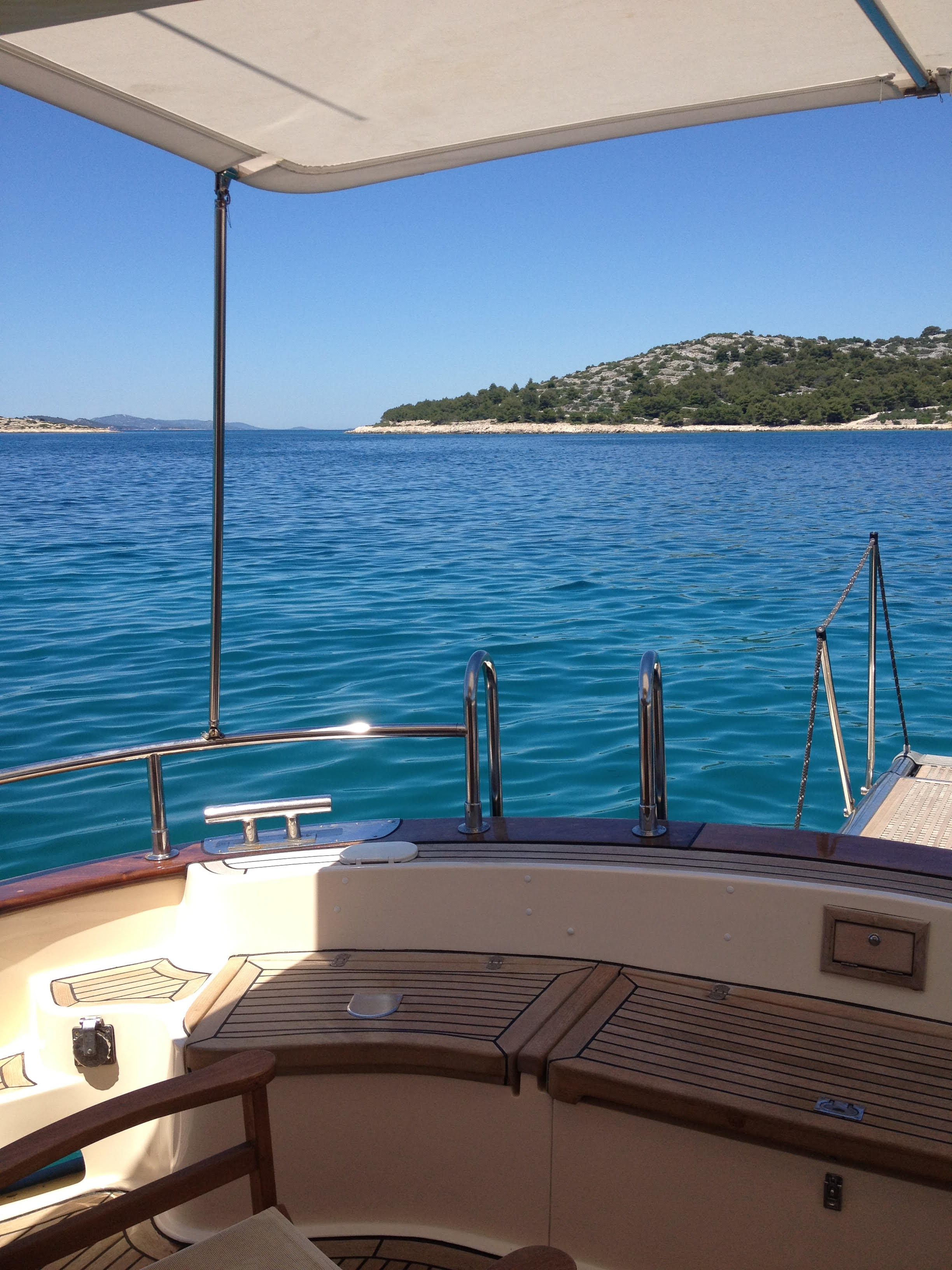
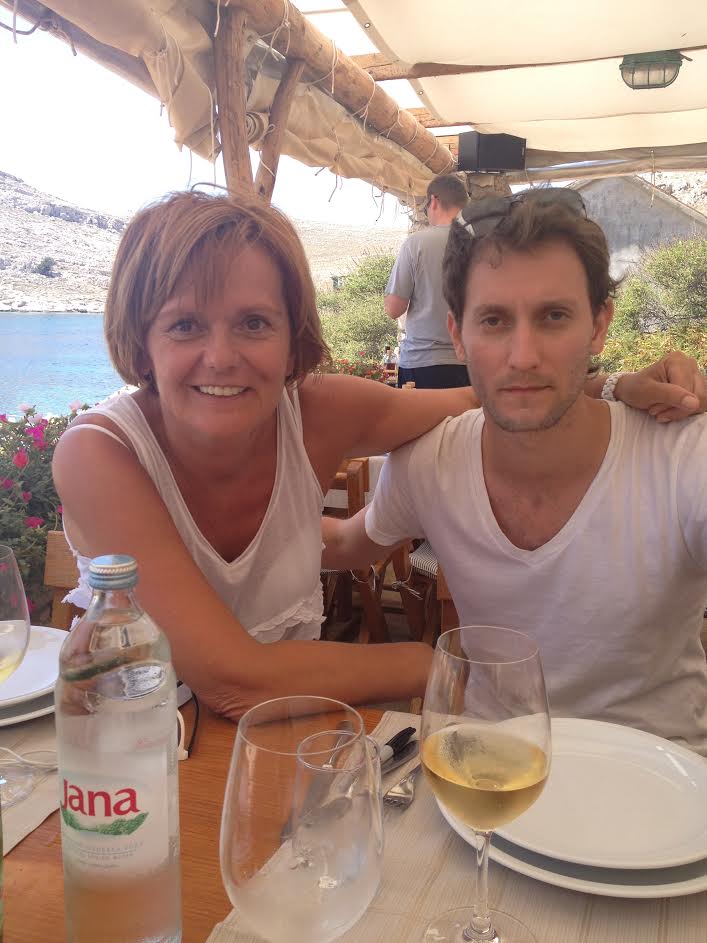
S Ankicom Mamić možete se povezati putem mreže LinkedIn.
Da biste pročitali više članaka iz jedne od naših šest serija koje smo gore spomenuli, kliknite ovdje (na eng. jeziku).
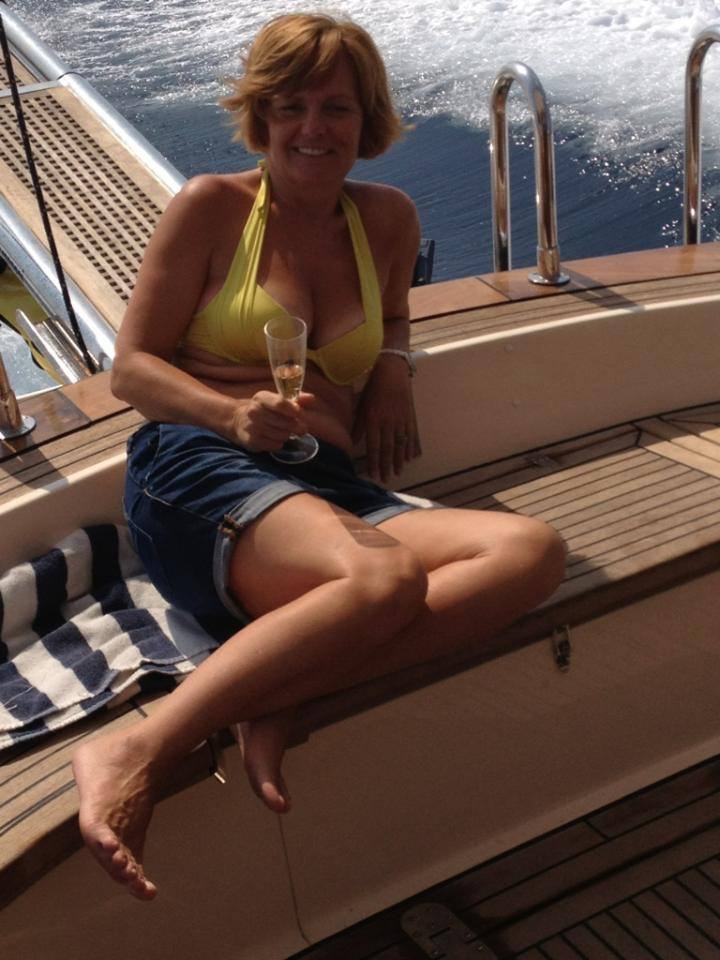
When Was Your Golden Era of Life in Croatia? Ankica Mamic in Zagreb
April 15, 2020 - So when your golden era of life in Croatia? A new series looking back to happier times through the eyes of Croatia's residents. First up, long time TCN fan and cook extraordinaire, Ankica Mamic in Zagreb.
I have had many requests to add different content - preferably happier - to mix up with the corona misery. I hear your pain. If you think constantly reading corona news is draining, spare a thought for those whose job it is to report on it all day.
So here is an idea, and I am very grateful to my good friend Ankica Mamic for giving it such an excellent start - When Was Your Golden Era of Living in Croatia?
A few weeks ago, we started a series called Foreign Self-Isolation Stories: Do You Feel Safer? asking expats locked down in Croatia comparing how Croatia was handling the situation compared to their home country. We have had almost 40 great interview responses so far, from Hong Kong to Honduras, China to Mexico, and Japan to New Zealand.
The next logical extension was Corona Voices in the Diaspora, checking how Croatians abroad were faring where they found themselves, compared to back in the Homeland.
And then, to try and add a little happiness, we started Expats in Isolation: My Top 10 Experiences in Croatia.
You can find all these, along with the submission guidelines for each section, underneath the interviews in the individual articles in this section.
But I also wanted to find a way for people living in Croatia to reflect on happier times, so we thought we would try with a series looking at people's recollections of their favourite era living in Croatia. If you would like to contribute, please send your text, 4-6 photos, an intro paragraph about and (if you want) a link to your website to This email address is being protected from spambots. You need JavaScript enabled to view it. Subject Golden Era.
And now, let's hear from about the golden years from Ankica Mamic.

Croatia is a beautiful country and if we were to talk about the beauties and advantages of living in it visible only to the eye, the list would indeed be exceptionally long. However, it’s not only the “outside” that is always beautiful. Some of the nicest memories happen when life and business, personal and one’s general goals are achieved.

I would like first to go back to the late 1980s, a time marked by the fall of communism and the rise of a centuries-old desire of having one’s own country. I was mature enough then but also still young, harbouring elation and passion, to experience and comprehend those events. I practically “lived on a diet” of news, followed all the talking points and events, and impatiently anticipated the next bit of news. Unfortunately, we quickly realised that achieving our dream was going to be difficult and painful. The war began and our lives changed overnight. Nonetheless, that difficult period of life brought about so many nice things. A sense of community, as well as devising and seeking solutions to life’s problems. Gathering in the basements of Zagreb restaurants were groups of people who in various ways wanted to give their contribution. I joined them with much enthusiasm and developed a closeness with those people who had a positive influence on my life and who quickly became important to society. Most of all, I was able to learn a lot from them because they inspired me to seek the best within me.

I also recall the fears I experience at that time. Though Zagreb was relatively peaceful, but organising life under the sound of sirens proved to be difficult. I found it especially worrisome that my daughter, who was ten years old at the time, had to attend classes. We knew that the price of freedom was great but, nonetheless, happiness that seemed to be dawning after the war seemed to have been worth it.

The consequences of war were as expected. A long period of adjustment ensued. The return to normality and recovery was slow. Fortunately, we lived to see better times. I especially recall the period from 2000 to 2006, a time of economic boom. I myself, as a relatively young businesswoman, identified and took advantage of those opportunities. During that time, I founded a public relations agency. It was a profession which, in all practical terms, had not existed yet, but opportunities began to appear. Living and working in Croatia during that time was really gratifying. In time, we eventually got our long-awaited Zagreb-Split motorway, for which our parents had been paying state contributions, and which finally enabled us to spend weekends in beautiful Dalmatia. It is from that period of time that I carry my fondest memories of the coastline, sailing and discovering Croatia’s islands, socialising as well as enjoying Croatian cuisine and wines. Indeed, the parts of the economy that experienced a boom since Croatia’s independence definitely included Croatian cuisine and wines.

Life is made up of good and not so good days and years. I always endeavoured to learn something in any crisis I encountered. However, the current crisis we are now sharing with the world, somehow seems to be the hardest of them all. I wonder what little goodwill possibly come of it after it has passed. Perhaps there is something. Croatia now has the opportunity to examine the reasoning behind its huge state apparatus and cleanse itself of the many unneeded organisations and agencies. A small light at the end of the tunnel is the collapse of populism, which has been proven to be completely powerless in the current crisis.


You can connect with Ankica Mamic via LinkedIn.
To read more in any of the four series mentioned above, click here.

Association Fights against Discrimination of Women over 50
Maturity, experience and diligence of women over 50 are a way to initiate real changes in Croatian society.
Why Bakačeva Street Looks More Like Nero's Burning of Rome than the Eiffel Tower
Bloggers of Croatia: Tourism, Politics and Ankica Mamic
Continuing our popular look at the bloggers of Croatia, TCN caught up with something of a rarity on February 29, 2016, a lady who blogs about Croatian politics in English. Meet Ankica Mamić, who has some very interesting opinions on both politics and tourism in Croatia.


